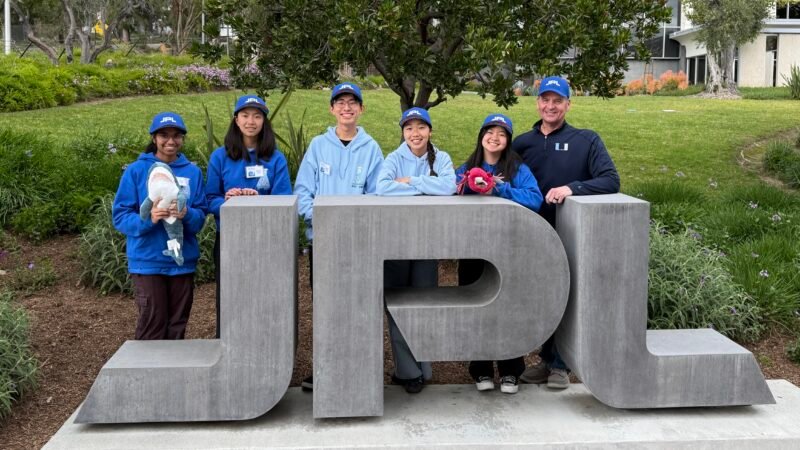Summary Points
- Teams for the Ocean Sciences Bowl consist of four to five students and a coach, preparing for months with rapid-fire, multiple-choice questions across various scientific disciplines.
- Questions cover topics including biology, chemistry, geology, physics, geography, technology, history, policy, and current events, challenging students’ knowledge in ocean sciences.
- Correctly answering multiple-choice questions earns teams bonus questions, encouraging collaboration among teammates, while complex questions require deeper teamwork for answers.
- The current competition theme is “Sounding the Depths: Understanding Ocean Acoustics,” focusing on the significance of sound in oceanic studies.
University High clinched victory at the recent JPL-hosted Ocean Sciences Bowl, showcasing impressive teamwork and knowledge in ocean sciences. The competition featured teams of four to five students each, along with a coach. These students dedicated months to preparing for the event, honing their skills through fast-paced, “Jeopardy!”-style questions.
This year’s theme, “Sounding the Depths: Understanding Ocean Acoustics,” emphasized the importance of sound in marine environments. Participants tackled questions across various categories, including biology, chemistry, geology, and physics. For instance, a chemistry question asked, “What chemical is the principal source of energy at many of Earth’s hydrothermal vent systems?” The correct answer is hydrogen sulfide. However, not all questions were this straightforward; many required deeper thinking and quick responses.
When students buzzed in correctly, their teams earned bonus questions. This allowed for collaboration among team members, creating an engaging atmosphere of teamwork and intellectual challenge. More complex “team challenge questions” drove students to strategize together, showcasing their collective problem-solving skills.
The Ocean Sciences Bowl not only highlights students’ academic prowess but also promotes interest in ocean-related technology development. Understanding sound in the ocean can lead to advancements in various fields, including underwater communication and marine conservation efforts. Overall, University High’s victory reflects the significant role of education in shaping future leaders in science and technology.
Continue Your Tech Journey
Explore the future of technology with our detailed insights on Artificial Intelligence.
Stay inspired by the vast knowledge available on Wikipedia.
SciV1

